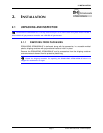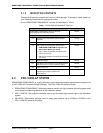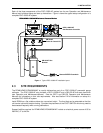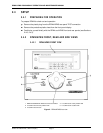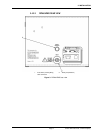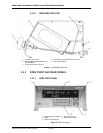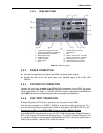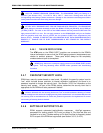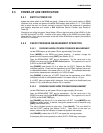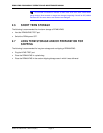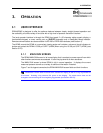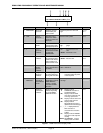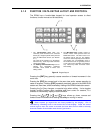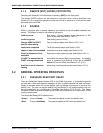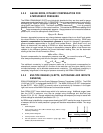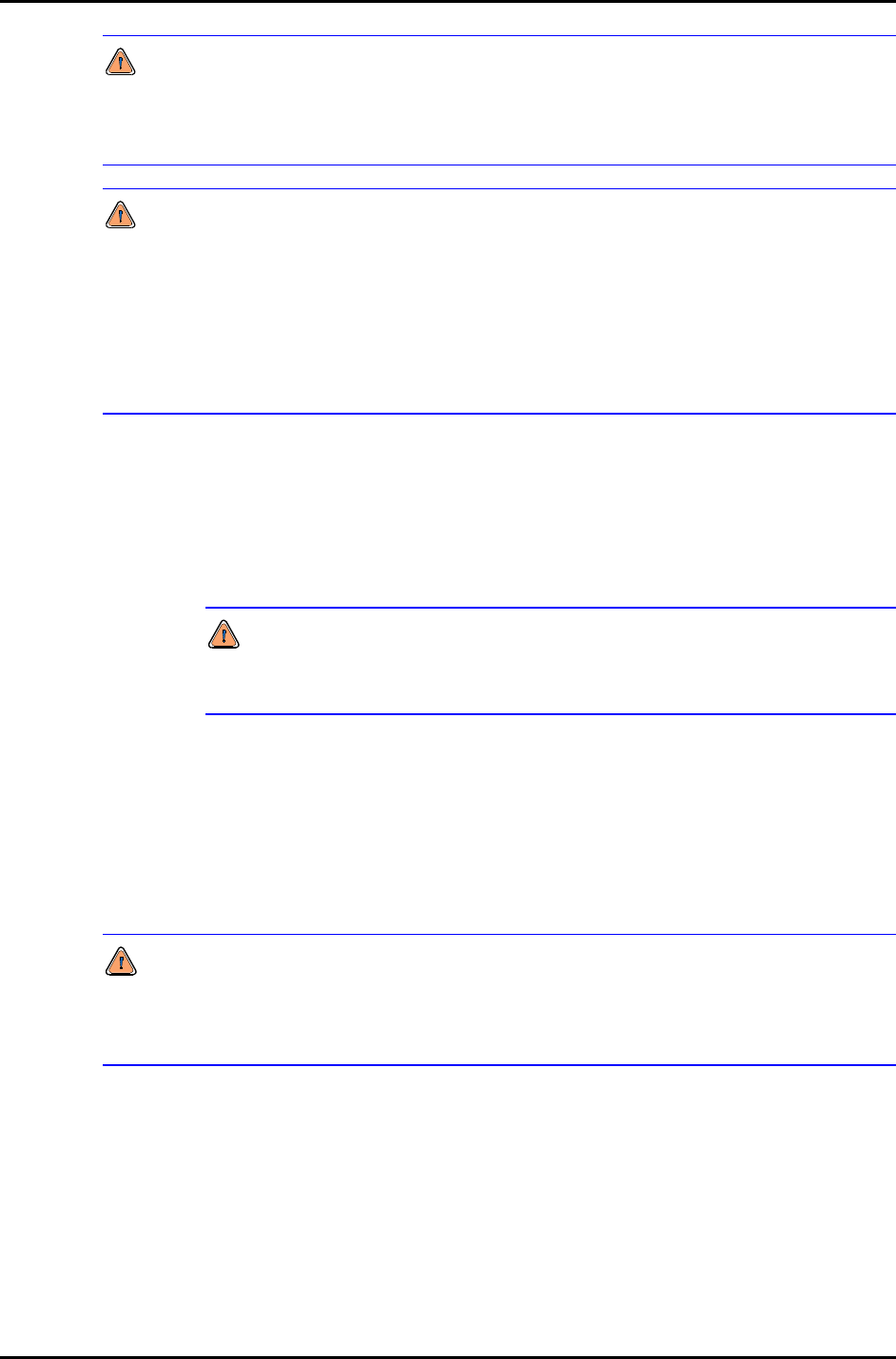
RPM4/HPMS A70M/A20M-AF OPERATION AND MAINTENANCE MANUAL
© 2007 DH Instruments, a Fluke Company Page 12
USE THE CORRECT PRESSURE CONNECTORS: The RPM4/HPMS TEST port fitting is a
DH500 F (see Section 1.2.1). It is NOT a 1/8 in. NPT F. Never use a fitting other than the
corresponding male fitting in these connectors. Damage to the connectors and dangerous failure
under pressure could result from using incorrect fittings.
DO NOT APPLY PRESSURE UNTIL YOU ARE FAMILIAR WITH OPERATION: The RPM4/HPMS
rear panel test port connects internally to both the RPM4’s 3 000 psi (20 MPa) and 10 000 psi
(70 MPa) Q-RPTs. The valve on the front of the HPMS isolates the low pressure Q-RPT when the
high pressure Q-RPT is in use. Do not apply pressure to the RPM4/HPMS until you are familiar
with its operation and know how to protect the low pressure Q-RPT from overpressure (see
Section 3.2.5). FAILURE TO PROTECT THE LOW PRESSURE Q-RPT FROM OVERPRESSURE MAY
DESTROY IT. DAMAGE DUE TO Q-RPT OVERPRESSURE IS NOT COVERED BY THE PRODUCT
WARRANTY.
2.4.6.1 THE ATM PORTS OF RPM4
The ATM ports on the RPM4 Q-RPT modules are connected to the RPM4’s
internal barometer to assure that the RPM4 gauge pressure measurements are
relative to ambient pressure. These ports should always be left completely
unobstructed and open to atmosphere.
NEVER plug, obstruct or connect a supply pressure to the RPM4 Q-RPT module
ATM ports. This may adversely affect GAUGE mode operation and AutoZeroing
functions.
2.4.7 CHECK/SET SECURITY LEVEL
RPM4 has a security system based on user levels. By default, the security system is set to
“low”, which includes access restriction to internal calibration coefficients, and there is no
password required to change the security level. See Section 3.5.5.5 for information on the
security level system. As part of the RPM4 startup, determine the security level that is
appropriate for the RPM4 and set a password if desired.
RPM4 is delivered with the security level set to “low” to avoid inadvertent altering of critical
internal settings but with access to changing security levels unrestricted. It is recommended that the
low security level be maintained at all times and password protection be implemented if control
over setting of security levels is desired.
2.4.8 SETTING UP AUTOTEST FILES
RPM4 supports automated test/calibration sequences. AutoTest sequence
parameters for testing specific DUTs can be stored in File AutoTest files and
recalled to run a test. Consider setting up File AutoTest files for frequently tested
DUTs as part of the RPM4 set up process (see Section 3.3.10, 3.4.5.2).




